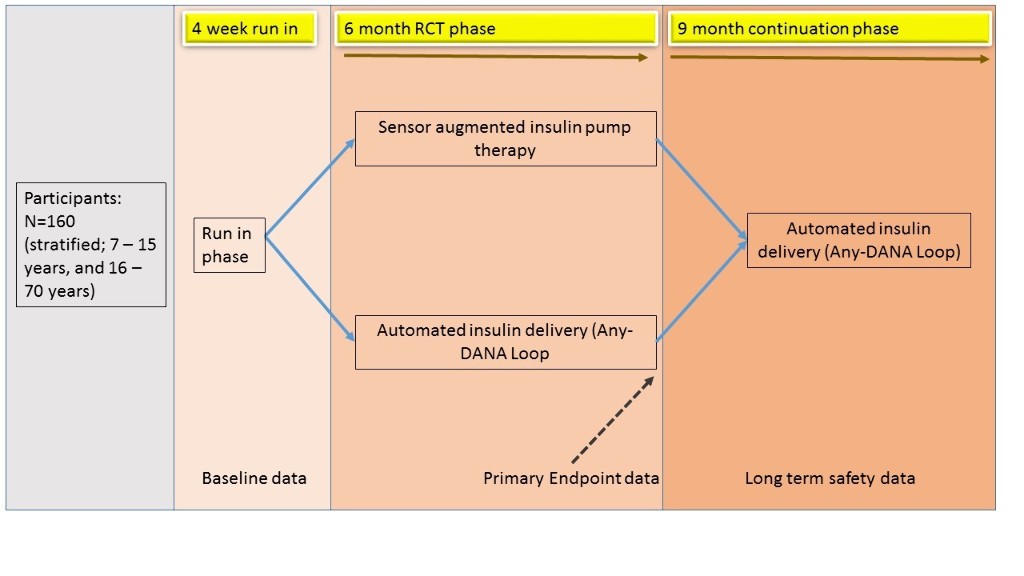Mercedes J. Burnside, New Zealand
Canterbury District Health Board PaediatricPresenter of 1 Presentation
CREATE (COMMUNITY DERIVED AUTOMATED INSULIN DELIVERY): RANDOMISED TRIAL COMPARING AUTOMATED INSULIN DELIVERY (ANYDANA-LOOP) USING OPEN-SOURCE ALGORITHM, WITH SENSOR AUGMENTED PUMP THERAPY IN TYPE 1 DIABETES
Abstract
Background and Aims
Commercialised automated insulin delivery (AID) systems have demonstrated improved outcomes in type 1 diabetes (T1D), however they have limited capacity for algorithm individualisation, and can be prohibitively expensive if there is no access to health insurance or health funding subsidy. Freely available open-source algorithms with the ability to individualise algorithm parameters paired with commercial insulin pumps and continuous glucose monitoring make up the “do-it yourself” (DIY) approach to AID. Limited data on the DIY approach have shown promising results, but data from a large randomized control trial are lacking.
Methods

The CREATE trial is an open-labelled randomised parallel 6-month multi-site trial comparing the Android Artificial Pancreas System algorithm paired with the DANA-I insulin pump (SOOIL, South Korea) and Dexcom G6 (DexCom, San Diego) continuous glucose monitoring system (together named AnyDANA-Loop), compared to sensor augmented pump therapy. Participants (n=160) with T1D aged 7 – 70 years (age stratified into children/ adolescents 7 – 15 and adults 16 – 70 years), will be recruited from four sites in New Zealand.
Results
The primary outcome will be the time in sensor glucose range (3.9 -10mmol/L). A 9 month continuation phase follows to assess long-term safety (see figure). Secondary outcomes include psycho-social factors and platform performance. Analysis of online collective learning, characteristic of the DIY approach, is planned.
Conclusions
This study is funded by the Health Research Council New Zealand, with hardware support from SOOIL and DexCom. The CREATE trial will be prospectively registered and first participants are expected to be enrolled February 2020.
